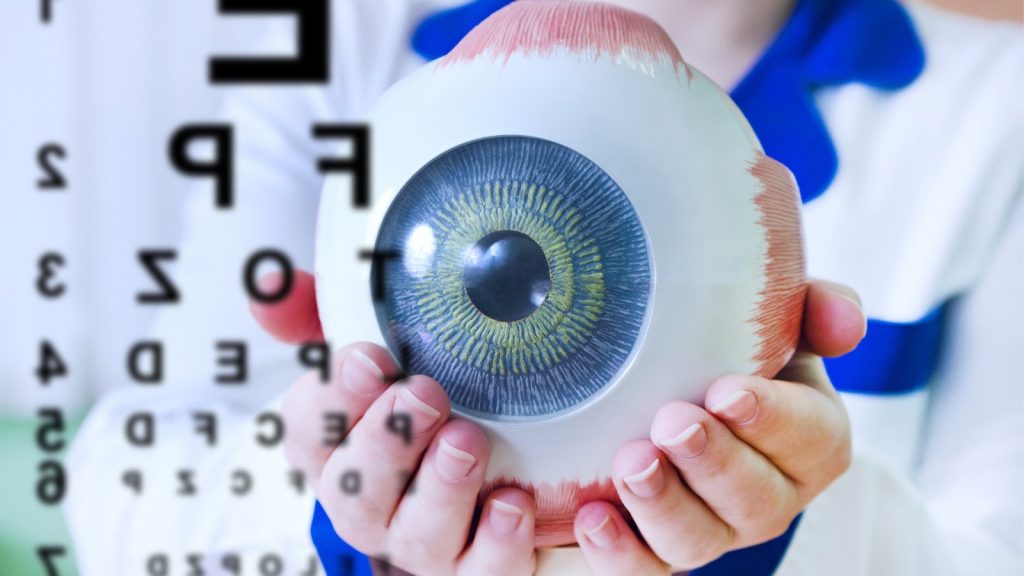Comprehending the Various Eye Issues Treated by Specialized Eye Treatment Professionals
In the realm of eye care, specialized specialists play a crucial duty in diagnosing and dealing with a wide variety of eye problems. From common refractive mistakes that influence vision quality to age-related problems that pose challenges as we get older, the proficiency of these experts extends to managing vision-threatening diseases and detailed corneal conditions. Additionally, the intricacies of neurological eye conditions present one-of-a-kind challenges that demand specialized treatment. As we get started on this expedition of the different eye conditions addressed by specialized eye treatment experts, it comes to be noticeable that the intricate web of eye health and wellness holds a myriad of remarkable insights waiting to be revealed.
Typical Refractive Mistakes
Refractive errors are typical aesthetic problems brought on by an imperfection in the eye's ability to properly focus light, resulting in blurred vision. The most common types of refractive errors include myopia (nearsightedness), hyperopia (farsightedness), astigmatism, and presbyopia. Nearsightedness happens when the eyeball is as well lengthy or the cornea is as well rounded, creating remote challenge show up fuzzy. Hyperopia, on the other hand, takes place when the eyeball is also brief or the cornea is also level, leading to nearby objects being out of focus. Astigmatism is characterized by an irregularly shaped cornea, leading to distorted or blurred vision in any way ranges. Presbyopia is an age-related problem where the lens sheds its adaptability, making it hard to concentrate on close objects.
These refractive errors can be fixed with various methods, including glasses, contact lenses, or refractive surgery. Eye care professionals play a critical role in diagnosing and handling refractive errors to assist individuals accomplish clearer vision and boost their lifestyle.
Age-Related Eye Conditions
As individuals age, their eyes might be prone to a variety of problems beyond refractive mistakes that can influence their vision and general ocular wellness. Age-related eye conditions prevail and can dramatically influence the lifestyle for older grownups. Among the most common age-related eye problems is age-related macular degeneration (AMD), a condition that creates main vision loss and can make activities like analysis and driving difficult. refractive surgeries in al. Cataracts, another typical problem amongst older individuals, trigger clouding of the eye's all-natural lens, leading to blurred vision. Glaucoma, defined by damages to the optic nerve, is additionally more common with age and can lead to outer vision loss or loss of sight if left neglected. Furthermore, presbyopia, a problem where the eye's lens sheds adaptability, is a natural part of aging and results in problem focusing on close items. Routine eye tests with specialized eye treatment specialists are essential for early detection and administration of these age-related eye conditions to protect vision and preserve eye wellness as people age.
Vision-Threatening Conditions
Vision-threatening conditions include a variety of severe eye conditions that have the prospective to substantially affect an individual's vision and overall aesthetic feature. These conditions present a danger of long-term vision loss if not immediately identified and dealt with by specialized eye care professionals. Some common vision-threatening diseases consist of glaucoma, diabetic person retinopathy, age-related macular degeneration (AMD), and retinal detachment.
Glaucoma is a group of eye problems that harm the look at more info optic nerve, commonly due to high intraocular pressure, leading to peripheral vision loss and prospective blindness if left unattended. AMD is a modern problem impacting the macula, leading to main vision loss.
Early discovery, routine eye exams, and timely intervention are critical in managing vision-threatening illness to preserve eyesight and keep lifestyle. Specialized eye treatment professionals play an essential duty in diagnosing, treating, and taking care of these problems to avoid permanent vision loss.

Corneal Disorders
Corneal disorders include a spectrum of problems that influence the clear front part of the eye, known as the cornea. Treatment for corneal conditions differs depending on the details problem yet may include medications, get in touch with lenses, or in serious Discover More Here situations, corneal transplants. Routine eye examinations are essential for early discovery and management of corneal disorders to preserve vision and eye health.
Neurological Eye Conditions
Neurological eye conditions include conditions that impact the link in between the eyes and the mind, affecting aesthetic handling and total eye function. These conditions can manifest in different methods, affecting vision, eye motions, and also the sychronisation between the eyes. One typical neurological eye condition is optic neuritis, identified by swelling of the optic nerve leading to vision loss, color desaturation, and pain with eye activity.
Another substantial condition is nystagmus, where the eyes make recurring, uncontrolled motions, influencing aesthetic acuity and deepness understanding. Additionally, problems like amblyopia, commonly referred to as "lazy eye," result from uncommon aesthetic development in very early youth, resulting in reduced vision in one eye.
Neurological eye problems need specialized treatment from specialists like neuro-ophthalmologists who have proficiency in both neurology and ophthalmology. Medical diagnosis usually includes an extensive eye evaluation, imaging studies, and cooperation with neurologists to resolve the underlying neurological problems affecting the aesthetic system. Treatment strategies can include medication, vision treatment, or in serious cases, medical interventions to take care of these that site complicated problems properly.

Conclusion
In conclusion, specialized eye treatment experts deal with a large range of eye conditions, consisting of typical refractive errors, age-related eye conditions, vision-threatening conditions, corneal conditions, and neurological eye conditions - refractive surgeries in al. By understanding these numerous problems and seeking appropriate therapy from eye care specialists, people can preserve optimal eye wellness and vision. It is necessary to prioritize regular eye exams and comply with recommended therapy plans to preserve and shield one's vision for the future